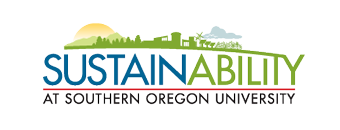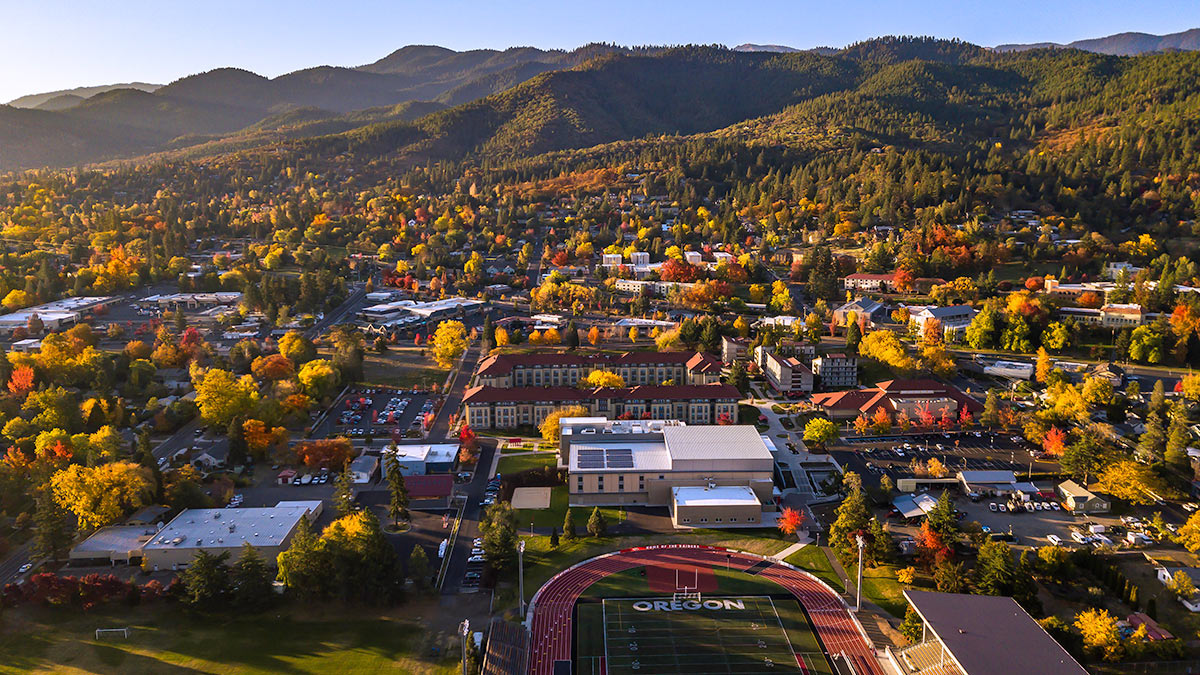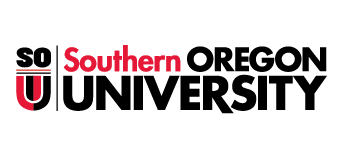Sustainability: as COVID-19 lays bare the problems, SOU can be part of the solution
May 12, 2020
Becs Walker
Sustainability and Recycling manager, Southern Oregon University
COVID-19 is challenging our way of life, our community and economy, and our relationship with nature and ecological systems. This is much more than navigating through the crisis of a pandemic, the immediacy of pressures on health services around the world, and the emotional impact of losing loved ones. COVID-19 is putting a spotlight on the very way we inhabit the planet.
The Food and Agriculture Organization of the United Nations highlighted in 2013 that population growth, agricultural expansion and the rise of globe-spanning food supply chains have dramatically altered how diseases emerge, jump species boundaries and spread. Globalization and climate change are redistributing pathogens, vectors and hosts, and pandemic risks to humans caused by pathogens of animal origin present a major concern.
We have made ourselves prone to a pandemic and also built an economy and society with very little resilience to one. The fragility of our supply chains and health care systems is being exposed. We have severely limited our access to space, nature and the outdoors in many cities and communities. We have prioritized consumerism and crowded living over our own health and well-being. It is no coincidence that less densely populated areas have been able to cope better with physical distancing measures and continued access to the outdoors, contributing to both mental and physical well-being.
Sustainability is not just about doing something that has a positive impact – or negates an adverse impact – on the environment. It is about system change for the economy, society and the environment to ensure that the needs of the present are met without compromising the ability of future generations to meet their own needs. To me, it is how we live and how we connect to nature and people. The very principles behind a sustainable society and economy are the very ones that COVID-19 lays bare that we have ignored. The message, which is being amplified by COVID-19, has never been clearer: we need to change.
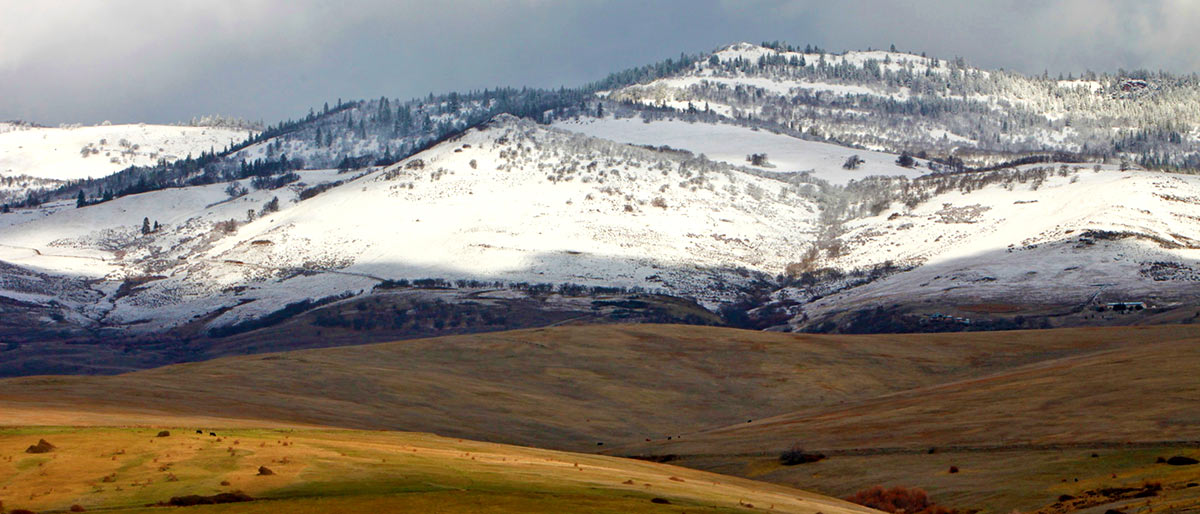
THE REBUILD: the role of sustainability at SOU
Systemic change is needed – from new technologies to new business models and different ways of doing things. To be a leader in the rebuild, we need to unlock our mindsets and think innovatively and creatively about the future. There are so many solutions and opportunities to address the massive challenge of the climate crisis and the current, unsustainable ways we live.
I moved to southern Oregon from Scotland six months ago and was new to the United States and higher education. Experiencing a different culture and a different sector has been an exciting challenge and opportunity – then COVID-19 happened and has blown my own personal journey of change into a collective journey of change. I have been looking at what this means for higher education and sustainability.
It is clear that COVID-19 is going to transform many aspects of life, and education will be one of them. It was calling out for change before, and this pandemic is forcing the matter. The digital ecosystem that develops for higher education post-COVID-19 is just one area that will impact both the business model and sustainability.
Flexibility, accessibility, resilience, equity, and sustainability are all being cited as principles that underpin the change needed in higher education before and after COVID-19. I am fascinated by the potential for the significant agendas of higher education and sustainability to support each other in bringing about the paradigm shift that we need. The pandemic has made apparent that both agendas are at tipping points.
SOU is well-positioned to exemplify the transformation. The university’s vision speaks volumes about our readiness for change. Our values align across the board with building a better world.
Southern Oregon University will become an inclusive, sustainable university for the future that guides all learners to develop the knowledge, capacities, and audacity to innovate boldly and create lives of purpose.
Sustainability is at the heart of our Strategic Plan. In a post-COVID-19 world, what does this mean in practice for sustainability at SOU?
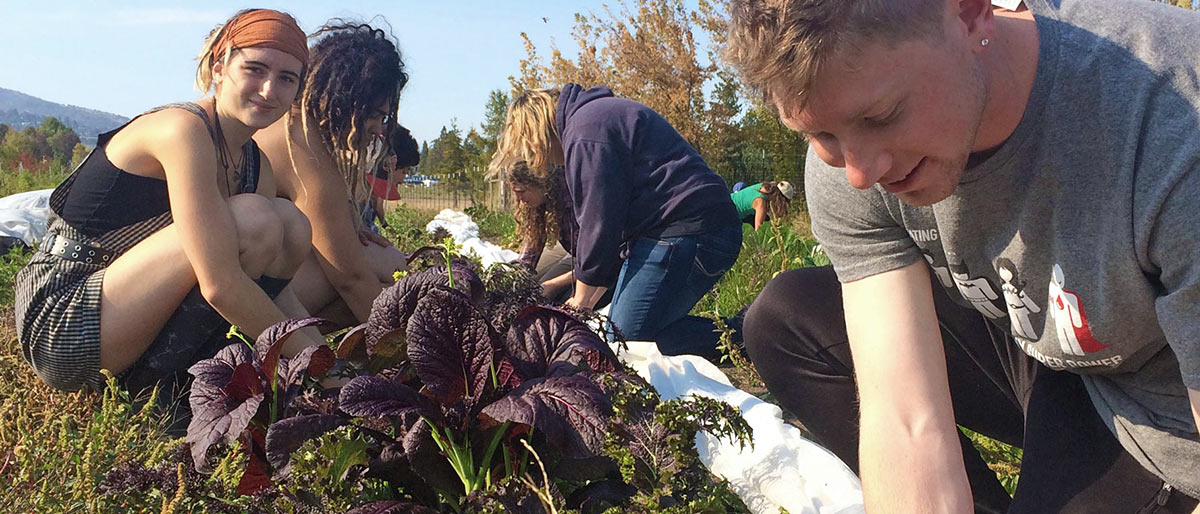
1) We can change
Our response to the pandemic at the individual, organizational, community, and national levels demonstrates that we can change. We changed our daily habits and routines overnight. Change is something that sustainability and the climate crisis has demanded for decades in various guises – sustainable development, climate change, circular economy – and something with which we have struggled. We now have an opportunity to change for the better.
Let’s push boundaries, unlock our mindsets, get creative, and be leaders for transformative change. For SOU, let’s leverage outside ideas and influencers to help innovate. Success for the future will be about the potential and ability to learn, apply, and adapt. We need to challenge ourselves to define how we should change operationally as a campus and how we change what – and how – we teach. This is about surviving and also thriving.
2) We need to value space, outdoors and nature
Since my arrival in the City of Ashland, I have found the views, nature, and access to outdoors absolutely magical. Southern Oregon University is settled in the foothills of the Siskiyou mountain range. The surroundings provide inspiration beyond the classroom with beautiful and diverse ecosystems of snowcapped mountains, Whitewater Rivers, lakes, and wilderness providing extensive outdoor experiences. Our location offers an easy connection to the outdoors and nature.
With my friends and family in varying degrees of lockdown around the world, there are many times I have said I feel so lucky to live where I can continue to enjoy nature and the outdoors during these uncertain times. We have the physical space to do so on campus and we are surrounded by nearby outdoor and wilderness opportunities. SOU must continue to hold its precious connections to the outdoors and nature in the highest regard.
3) We need to protect and enhance the health of our ecological systems
Our resilience and survival in the face of a pandemic is inextricably linked to healthy ecosystems – from clean air to breathe, the pollination of our crops, and healthy water supply, to regulated weather patterns. For example, a Harvard study has revealed that prolonged exposure to particulate matter 2.5 is increasing the number of deaths from COVID-19. This shows that our abundant use of fossil fuels and motor vehicles, which negatively impact our air quality, is exacerbating the problem. Milan, Italy, has recognized the benefits of reduced air pollution during its lockdown and is transforming 35 kilometers of streets to expand opportunities for cycling and walking. Investing in renewable energy generation and using electric vehicles has a direct impact on improving air quality and supports cycling and walking infrastructure.
4) We need to build resilient and sustainable supply chains
COVID-19 has stressed and broken supply chains for personal protective equipment. Communities have been coming together to make or source the right gear for frontline workers. Distilleries have innovated and are making hand sanitizer, bicycle manufacturers are making face shields, and 3D printer companies are putting out designs for protective gear on open source and encouraging 3D printer owners to start printing. SOU has been making its own hand sanitizer in its Environmental Chemistry labs. We also made disinfectant packages to distribute across campus to keep everyone safe. We have used refillable bottles and washable clothes rather than jump immediately to disposables – which would ironically address one crisis and make another one worse.
Green purchasing or sustainable procurement goes far beyond the environmental credentials of the company with which we do business or the environmental impact of the product we buy. Money talks and our transactions can influence innovation, social equity, the resilience of a supply chain, jobs in a local economy, greenhouse gas emissions, and environmental impact. SOU needs to use its purchasing power to support the local economy, drive innovation, promote social equity, and mitigate climate crisis impacts. This is part of our role in southern Oregon’s economic recovery from COVID-19, and our buying practices will help us build resilient and sustainable supply chains for the university.
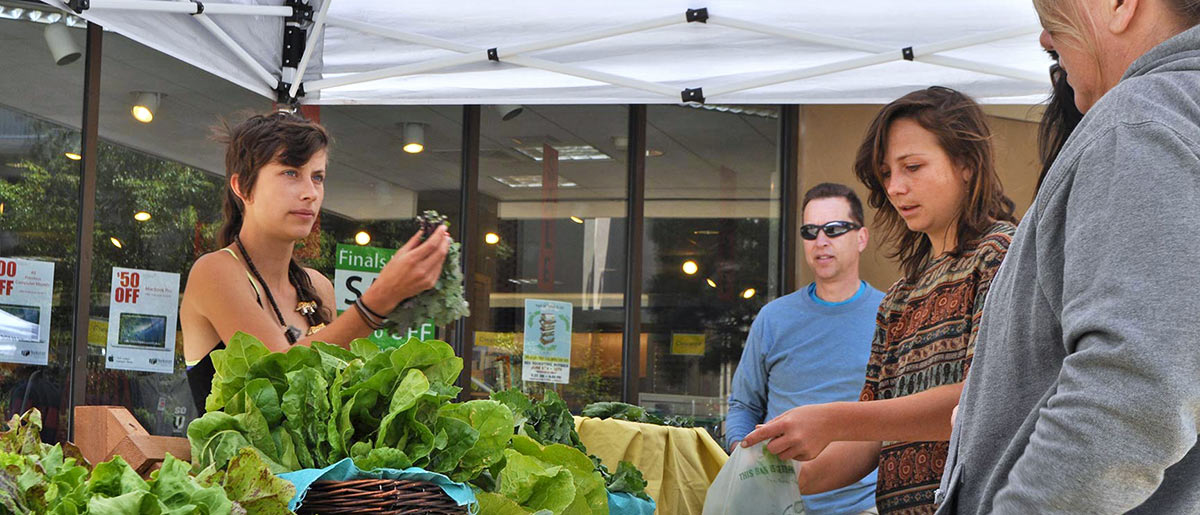
5) We need to build resilient food systems
COVID-19 has exposed fragile and inequitable global food systems. The sheer lack of resilience, and the inequity of food security and supplies, have been well-known for decades. Even wasted food is a major problem that squanders the resources that were used to produce it and contribute to greenhouse gas emissions as it decomposes. But the pandemic could really challenge us to rethink how we source, value, and transport food. The climate crisis is likely to compound our weaknesses if we don’t address them now.
SOU is well-placed to lead in shortening supply chains, promoting equity, locally sourcing and growing its own food, and supporting far more sustainable agriculture. Our university has started to tackle these opportunities through its commitments to the Real Food challenge, growing our own food on the campus farm, and reducing wasted food.
This is not simply about staying the course and surviving. This is about innovating, adapting, and thriving. Investment in renewable energy has been cited by multiple players as a critical part of rebuilding our economy. I believe the most resilient businesses, organizations, and communities in the future will be those with sustainability right at their heart. I’m excited to be working for an organization that can make that happen. The SOU community can be a trailblazer for this new world of local, resilient supply chains and food systems, investment in renewable energy, commitment to outdoor space, connection to wildlife and habitats and appreciation for every clean breath of air. We can demonstrate our strong values of equity, creativity, and success, and our obligation to the safety and well-being of students. As COVID-19 lays bare the problems, SOU can be part of the solution.
